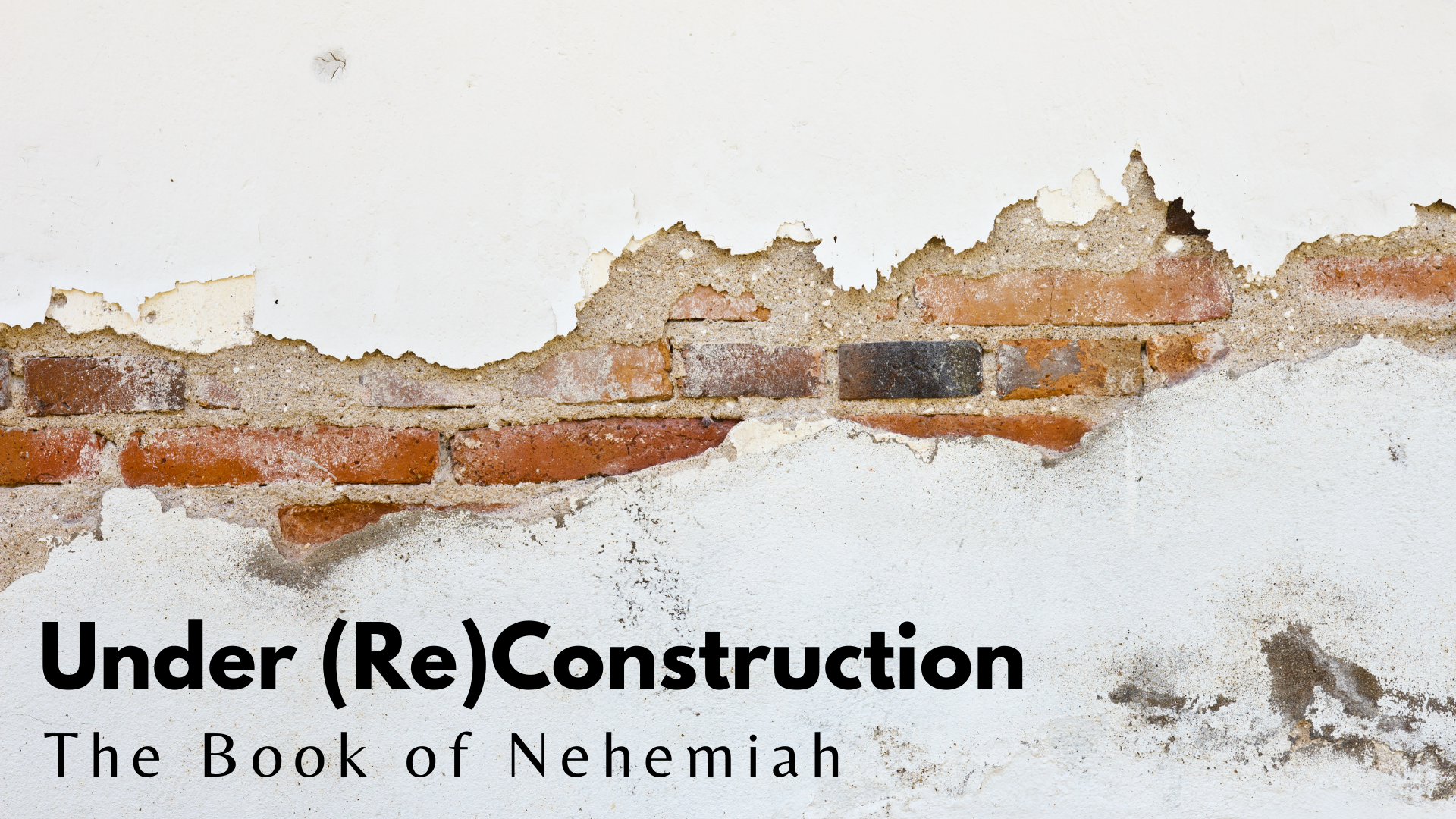4/6/22 Glenda Simpkins Hoffman
Last week the Women’s Bible Studies concluded our twelve-week study of Nehemiah. I asked each person to share with the small group the lessons they have learned from our study of Nehemiah. One of the small group leaders reached out to tell me that the sharing in her group was really powerful, and she wished I could have heard it. She then asked what I learned. That’s a great question, so I have decided to write a blog about it. I confess from the start, that there are more lessons than can be contained in one blog.
The focus of Nehemiah isn’t just the building of the wall, it is the restoration and renewal of the people of God. As the Women’s Bible Study walked through Nehemiah chapter by chapter, I was intrigued by the role that spiritual disciplines had in shaping the people of God.
Nehemiah is brokenhearted by the desperate situation in Jerusalem. Before he acts, he prays, confesses his sin and that of his people, and fasts. These are spiritual disciplines that reflect a deep trust in God. Fasting is the ultimate act of self-denial, and prayer is the ultimate act of dependence on God. Nehemiah models the importance of prayer throughout his leadership as he looks to God for guidance, provision, and empowerment for the leadership he was to provide for God’s people.
Nehemiah has a vision for a different future for Jerusalem, so he prays, acts, and leads the people of God in rebuilding the wall. He knows he cannot do what needs to be done alone. Each person has his or her role and responsibility, but it takes a community working together to rebuild the wall. The disciplines of humility, unity, and service are apparent in how each person knows their place and works together to serve for the glory of God and the common good.
Their efforts are not without resistance and challenges from those who are opposed to them. Nehemiah encourages them: “Do not be afraid of them. Remember the Lord, who is great and awesome…. Our God will fight for us” (Nehemiah 4:14, 20). They kept their eyes on God and the mission and remained resilient and persevering until the wall was finally built in record time.
But getting the wall built was just the beginning. The people needed to have their minds renewed by hearing God’s word. They responded by celebrating God’s goodness and faithfulness with joy as they feasted and spent time with family and friends (chapter 8). They remembered their shared history and confessed the sins of their ancestors and their own sins (chapter 9). Chiefly, they needed to confess idolatry, which is the fundamental rejection of God and his ways by making something else more important than God.
Spiritual disciplines are a means of grace that help us to trust God—to put ourselves in a position to receive from God what only he can give. Spiritual practices don’t earn God’s favor. But God can and does use them to help us experience the unconditional love he has already given. And, as in sports, music, or any endeavor, disciplines help train us so we become the kind of people who rely on Jesus’ grace and the power of the Spirit to do in and through and for us what only he can do.
While we live in an immediate-gratification and quick-fix culture, what is needed in following Christ is A Long Obedience in the Same Direction, as Eugene Peterson makes clear in his classic book on discipleship. Just as the people in Nehemiah’s day needed structure and accountability to remain faithful, so we need spiritual disciplines to help us keep our eyes on the Lord and to continue to trust and follow him in the warp and woof of our everyday lives—disciplines that include reading God’s word, prayer, confession and self-examination, humility, community with others, service, worship, and celebration.
In reading Nehemiah, you may have asked the question “Why is there so much attention to and emphasis on the Temple?” People are organized to live in Jerusalem to revitalize the city. There is a lot of attention given to getting the staff in place and having the people give tithes and provide supplies, animals, and wood for sacrifices. Why this focus rather than on praise, personal integrity, sexual purity, business, ethics, and so on?
It’s important to understand that the main human problem in the history of Israel, including Nehemiah’s day, was alienation from God. The people continually rebelled against God by going their own way. What is most needed is forgiveness of sin in order to be reconciled to God. In the Old Testament covenant, forgiveness came through the sacrificial system that God ordained and provided through the Law of Moses. The temple was the place where that happened. The temple was where the priests confessed sins and offered sacrifices for the sins of the people. The temple was the great meeting place between God and sinful people to restore the covenant relationship with God.
The New Testament picks up on this as Jesus is presented as the ultimate temple of God—the meeting place between God and people. In John 2:19-22, Jesus says, “‘Destroy this temple, and in three days I will raise it up’…. he was speaking of the temple of his body.” Jesus is not only the ultimate temple, but the ultimate sacrifice and priest. Because of his once-for-all sacrifice in his death, we have forgiveness of sin.
But there is more! In Ephesians 2:20-22, Paul writes about the church as a “spiritual house” and “a holy temple in the Lord, in whom you also are built together spiritually into a dwelling place for God.” The church—not the building but the people, the collective body of Christ—is the temple, the meeting place of God and sinners.
And then in 1 Corinthians 3:16 Paul points to the fact that the individual Christian’s body is the meeting place of God and other people. “Do you not know that you are God’s temple and that God’s Spirit dwells in you?” As God’s people, our lives are to reflect the holiness of the God who indwells us.
The implications of this are huge. Those who have placed their faith in Jesus have received the Holy Spirit. We have become the meeting place between God and people. No longer do we have a temple in Jerusalem. We carry the presence of Christ with us to whomever we meet, wherever we go, whatever we do. This is radical. Our ministry and service certainly include the many ways we are called to serve in the church and through the ministries of the church. But we are also to love and serve the Lord and the people in our homes, neighborhoods, schools, and workplaces. We are to see ourselves as those sent by Christ in the power of the Spirit to participate in his ongoing ministry and mission in the world.
The final lesson for me comes from chapter 13. We find that the people have reverted to previous practices and are not living out their commitments. Frankly, it’s kind of a bummer. But it reminds us that while we are to pray for revival and renewal and do all we can to build the kingdom and community of God as Nehemiah tried to do in his day, it’s never going to be perfect.
The struggle with brokenness and sin is ongoing until Jesus comes again, when we will have a new heaven and a new earth. We will finally be given new resurrection bodies and live in a home of righteousness where there will never be any sin, death, despair, defeat, or idolatry ever again. We shall gather around him who sits on the throne, and we shall see the lamb by his side, and we shall recognize that he is our temple and that we need no other.
Until then, we are in process and need to continue to ask God for forgiveness of our sin, pray for renewal of the covenant, and seek his face. We need to keep our eyes open to what God is doing and thank him for his faithfulness. But we must never think the Christian’s life is easy or comfortable or some kind of magical experience. The ultimate transformation comes when Jesus himself comes again and sets everything right. We trust him, wait on him.


